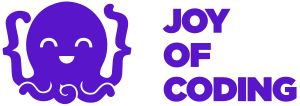Felienne Hermans
How Do Kids Program in the Wild?
Scratch is an amazingly popular programming language for kids, with 14 million public programs available in their online repository. But, what do kids do in their programs? Are their programs simple or complex? Do they apply programming concepts or do they just play with the blocks? Do kids develop good programming habits? Are there common code patterns?
To answer those questions, we scraped the Scratch repository, retrieved 250,000 projects and performed source code analysis on them.
In this talk, you will learn about:
- Scratch programming, in case you want to teach your kids (or play yourself :))
- Our methods for scraping and analyzing 250k programs
- The answers to all research questions above, including whether kids make 'smelly' programs (spoiler alert: yes!)
We will also discuss the lessons learned and showcase some extreme cases we found in the Scratch repository.
About
Felienne is assistant professor at Delft University of Technology. In 2013, she defended her PhD thesis ‘Analyzing and Visualizing Spreadsheets’, after which she remained in Delft to continue working on the application of software engineering methods to spreadsheets, assisted by an STW Open Competition grant.
During her PhD she founded a company called Infotron, which brings her spreadsheet quality analysis tools to the market, currently serving customers including KLM Air France and Robeco.
One of Felienne’s biggest passions in life is to share enthusiasm for programming with others. She teaches a bunch of kids LEGO Mindstorms programming every Saturday in a local community center and is one of the founders of the Joy of Coding conference, a one day developer conference in Rotterdam, celebrating the love for programming.











